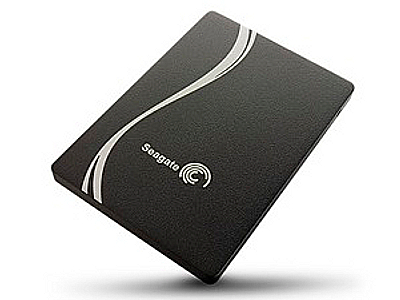Seagate Intros a New Portfolio of SSDs
Seagate has revealed four storage solutions spanning the consumer to the server.
On Tuesday Seagate introduced a new portfolio of SSDs for the consumer and enterprise sectors: the Seagate 600 SSD, the Seagate 600 Pro SSD, and the Seagate 1200 SSD. The company also announced the new Seagate X8 Accelerator, a storage class memory PCIe card powered by Virident.
For starters, Seagate claims that the 600 SSD is the ultimate laptop upgrade for consumers, offering boot times nearly four times faster than the standard hard drive, and application load times more than two times faster. The 2.5-inch drive is available in multiple z-heights including a 5mm-high form factor, and features up to 480 GB of capacity and a SATA 3 (6 Gb/s) interface for fast data transfer rates.
Next is the Seagate 600 Pro, an entry-level enterprise SATA 2.5-inch SSD and an ideal solution for cloud system builders, hyperscale datacenters, cloud service providers, content delivery networks, and virtualized environments. Seagate said it features the industry’s highest IOPS/watt to improve system performance while reducing power and cooling costs. It's available with up to 480 GB of capacity, and is equipped with a SATA 3 interface as well.
Third in line is Seagate's new 1200 SSD which is designed for demanding enterprise storage and server applications with complex, write-intensive mixed workloads. According to Seagate, this new drive uses algorithms that optimize performance for frequently accessed data by prioritizing which storage operations, reads or writes, occur first and optimizing where it is stored.
"It incorporates a dual port 12 Gb/s SAS connector providing 100-percent faster interface speed, over previous generations, for twice the I/O bandwidth while ensuring the highest level of reliability, availability and scalability. The drive is also backwards compatible with 6 Gb/s SAS environments," the company said.
The Seagate 1200 SSD is available with up to 800 GB capacity, and arrives in either a 1.8-inch or 2.5 inch form factor.
Finally there's the Seagate X8 Accelerator, a single, low profile x8 PCIe Gen-2 card (HHHL). Seagate said that it delivers memory-class performance (up to 1.1 million IOPS) and storage-class capacity (up to 2.2 TB) with enterprise reliability and data integrity. It also boosts server performance with ultra-fast speed that is up to 2X faster than the closest competitor and closer to DRAM performance than storage.
Get Tom's Hardware's best news and in-depth reviews, straight to your inbox.
"The X8 Accelerator enables today’s computer architectures to fully exploit the growing number fast CPU cores and the PCI Express interconnect bus to deliver maximum application performance," the company said. "This PCIe card fits in any server and provides the highest capacity in a single low-profile card, enabling organizations to maximize the use of valuable server and data center space."
For more information about Seagate's new line of SSDs, head here.

Kevin Parrish has over a decade of experience as a writer, editor, and product tester. His work focused on computer hardware, networking equipment, smartphones, tablets, gaming consoles, and other internet-connected devices. His work has appeared in Tom's Hardware, Tom's Guide, Maximum PC, Digital Trends, Android Authority, How-To Geek, Lifewire, and others.
-
acyuta Another outdated posting from Tom's. More and more instances of outdated stuff at Tom's over the last few months.Reply
Seagate and WD have to get their act together in the SSD business and build it to a good share over the next few years. Already we are seeing 960 GB Crucial SSDs in the market. Although that is priced at 6-7 times a conventional HDD, that multiple will fall surely. Will the SSD industry move to 2TB in say 2014-15 and more importantly, will 500GB-1TB price multiples shrink to 1-3x of hard disks. That could be a very bad scenario for Seagate/WD. -
warmon6 Reply10776790 said:Another outdated posting from Tom's. More and more instances of outdated stuff at Tom's over the last few months. Seagate and WD have to get their act together in the SSD business and build it to a good share over the next few years. Already we are seeing 960 GB Crucial SSDs in the market. Although that is priced at 6-7 times a conventional HDD, that multiple will fall surely. Will the SSD industry move to 2TB in say 2014-15 and more importantly, will 500GB-1TB price multiples shrink to 1-3x of hard disks. That could be a very bad scenario for Seagate/WD.
This has been going on for years...... -
Steelseries Whenever I see articles on SSD's I scroll to the bottom for an indication of the price/size ratio as all the other factors are usually relatively staticReply
Talk to us in $$! -
Steelseries Whenever I see articles on SSD's I scroll to the bottom for an indication of the price/size ratio as all the other factors are usually relatively staticReply
Talk to us in $$! -
Steelseries ^ Accidentally refreshed the page, which comes with the added feature of posting my comment again...Reply
